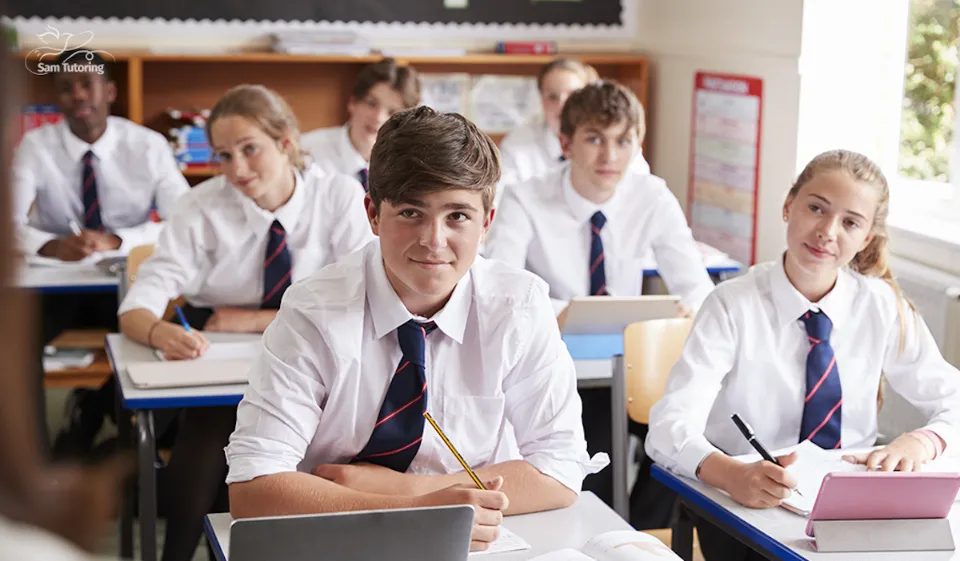
How Do Middle-class Families Afford Private Schools?
Many families may feel as though private schools are out of reach. Middle-class families in many U.S. cities are struggling with the cost of health care, education, and other expenses on the rise. The cost of attending private school often prevents middle-class families from even considering the option because just paying for basic necessities can be difficult.
For middle-class families considering private schools, this article outlines the financial options to afford private schools on a budget.
How Do Middle-class Families Afford Private Schools?
Apply for Financial Aid
Financial aid applications are accepted from families who cannot cover the full cost of private education. In private schools, about 24% of students received financial aid for the 2015–2016 school year, according to the National Association of Independent Schools (NAIS).
At boarding schools, the proportion of students receiving financial aid is even higher, at almost 37%. Almost all schools provide financial aid, and many of them pledge to cover 100% of a family’s exhibited need.
Read More: Why Are Private Schools So Expensive? Top Reasons
Families must fill out a Parent Financial Statement (PFS) when they submit an application for financial aid. This is accomplished through NAIS’s School and Student Services (SSS).

The information you provide is then used by SSS to produce a report that estimates how much you can contribute to learning experiences, and schools use that report to determine whether you have a demonstrated need.
Tuition-Free Schools & Full Scholarships
Despite popular belief, not all private schools charge tuition. Yes, some colleges in the nation offer tuition-free education, and others provide full scholarships to deserving students from low-income families.
Free schools like Regis High School, a Jesuit boys’ school in New York City, and colleges that provide full scholarships to deserving families, like Phillips Exeter, can make going to private school a possibility for families who previously didn’t think such an education would be affordable.
Lower-Cost Schools
Tuition costs at many private schools are lower than those at the typical independent school, making private education more affordable. The Cristo Rey Network, a network of 24 Catholic schools spread across 17 states and the District of Columbia, for instance, provides a college-preparatory education at a lower cost than most Catholic institutions.
Tuition at many Catholic and parochial schools is less expensive than at other private schools. In addition, some boarding schools across the nation charge lower tuition. For middle-class families, these institutions make it easier to afford private education, including boarding schools.
Enjoy Employee Benefits
Tuition remission, a service provided to faculty and staff at private schools, is a little-known perk of working there. It allows them to send their kids to school for a discounted price. Tuition remission at some schools entails partial cost coverage, whereas at other schools the full cost is covered.

It is possible to use this strategy, though it obviously requires that there be a job opening and that you meet all the requirements to be a top candidate hired. Also, keep in mind that there are other positions available at private schools besides teaching.
You might be surprised by the variety of jobs offered at private schools, which range from the business office and fundraising positions to admission/recruiting and database management, event marketing, and software development.
Therefore, you might think about dusting off your resume and applying for a job at a private school if you know that your skills match the needs of such a school and you want to send your kids there.
Things to Consider
- beginning with your child. Because they think education is the greatest gift they can give their children, many parents of children in private schools are prepared to make financial sacrifices. A private school may be an option to think about if your child seems to detest going to school or if they have a special talent, interest, or learning style that is not being encouraged in a public school.
- Don’t automatically assume you can’t afford it. Unless you are extraordinarily wealthy, choosing to send your child to a private school requires taking a close look at your lifestyle. Are you prepared to drive an older model car, get by with just one car rather than two, or even relocate to a less expensive neighborhood in order to pay for college? For many families, it is worthwhile.
- Tax deductions do exist (occasionally, for some people). If your doctor recommends that your child attend a particular school and your child has any type of mental or physical disability, including neurological disabilities like ADHD, tuition costs may be deducted as a medical expense. The primary goal of the school must be to assist students in overcoming their specific disabilities in order to qualify. You can subtract the price of your room and board.
- Financial aid typically remains available. Assuming there’s no drastic change in the family income, it’s unlikely a school will “pull the plug” on an award after the first year. Since the child won’t be attending school for as long and require less financial aid, it is typically simpler to obtain financial aid in middle and high school than in first grade.
Conclusion: Afford Private School
Private schools gave out a record-breaking half a billion dollars in financial aid to families last year, the majority of whom were middle class rather than poor. A few typical methods include saving money, working for the school, using vouchers, and receiving scholarships. The cost of attending many private schools is not prohibitive.
FAQs
How Much Are Private School Fees UK?
According to the Financial Times, the average fee for independent schools is currently £15,191 per child per year, increasing to £36,000 for children who board.
How Much Are Private School Fees NZ?
For primary schools, annual tuition starts at around $11,000, and for secondary schools, it’s around $14,000. Annual fees for private primary and secondary schools start at about $25,000.
How Much Does Private School Cost in Ontario?
The average cost of a private school in Ontario, for example, could be anything between $10,000 and $50,000 per year. These fees frequently come on top of other costs like textbooks, uniforms, electronic devices, and so forth.


